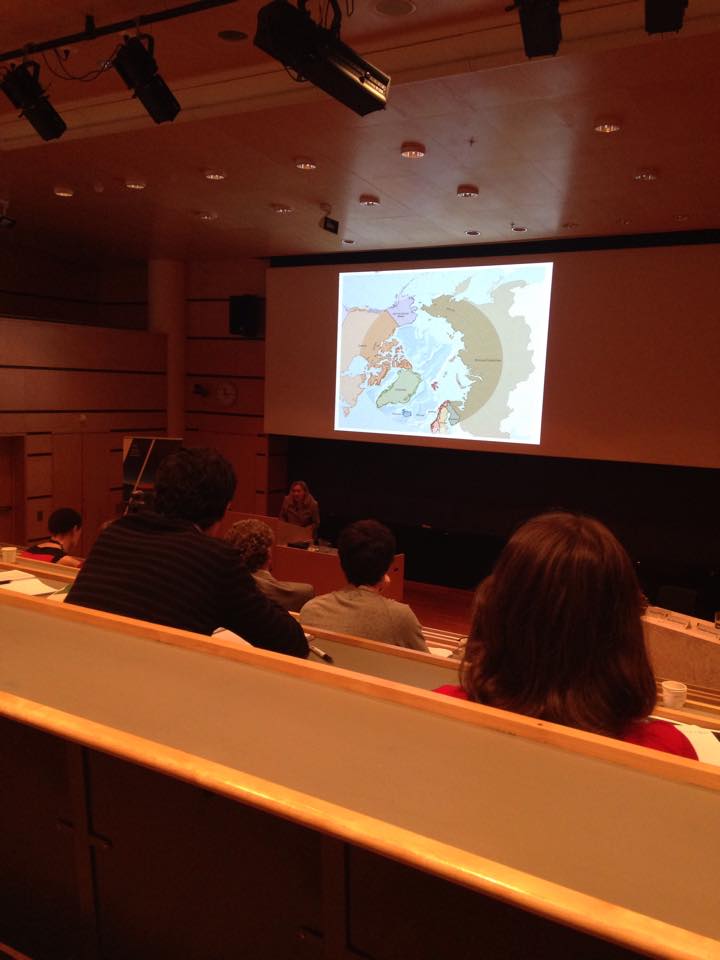
The two-days Energy Law Conference -The legal issues associated with the development and use of Arctic energy resources- just started this morning (25th September 2014) at the University of Tromsø, Faculty of Law (Norway).
Trudi Haugli, dean of the Faculty of Law of Tromsø, welcomed the attendants to the conference, followed by the opening comments by Johan Petter Barlindhaug (Chairman of the board of North Energy ASA) and Nigel Bankes (Professor and Chair in Natural Resources Law, Faculty of Law, University of Calgary, and Adjunct Professor, Faculty of Law, University of Tromsø ).
The conference, co-hosted by the University of Tromsø, and the K.G. Jebsen Centre for the Law of the Sea (Tromsø), will have today three distinct sessions. The first session, "Arctic energy: strategic and environmental issues" will be chaired by Nigel Bankes: the second, " Offshore oil and gas activities: compensation and liability issues", by Timo Koivurova (Research Professor at ARctic Centre/University of Lapland, and Professor of International law at University of Eastern Finland and Turku); while the third and last session of the day, " Governance issues and Arctic energy" will be chaired by Ingvild Jacobsen, KGJ Centre for the Law od the Sea, University of Tromsø.
Remarkably, Else Berit Eikeland, Member of the Arctic Council - Senior Arctic Official, Norwegian Ministry of Foreign Affairs and one of today's keynote speakers, described the vision of Norway for the Arctic and specifically the vision on energy issues related with the development of the Arctic.
Else Beirit Eikeland confirmed the strong involvement of Norway on petroleum and oil and gas resources in the Arctic, but also the strong commitment for the environment and specifically, to tackle climate change in the region.
As regarding the Arctic in large, the norwegian SAO underlined that the region is a place of peace and stability. In fact, contrary to what is often described in the media, no "rush for resources" is going on in the region, since the necessary legal scheme is already provided by "Law of the Sea" framework. In addition, the environment (and specifically climate change) has been a common priority to the eight Arctic States since 1996.
The focus was than given to Norway-Russia relations, a key aspect of Norwegian policies. Environement, fisheries, Petroleum, and bilateral cooperation at the AC for oil spill prevention (espacially from maritime shipping and offshore activities), are among the most important and valuable points of Norway-Russia cooperation, and among the main reasons why for Norway is so important to keep working with Russia.
During the speech, it was also disclosed that the EU' observer status at the Arctic Council will be soon formalised, since an agreement with Canada has been reached.
In her conclusions, Else Beirit Eikeland welcomed the recent establishment of the Arctic Economic Council, a venue to foster the open dialogue among the Arctic States, NGOs and big oil and gas companies operating in the Arctic. The new Council aims to deal with the enormous economic and social effects the melting of sea ice will have in the area.
Written by Federica Scarpa